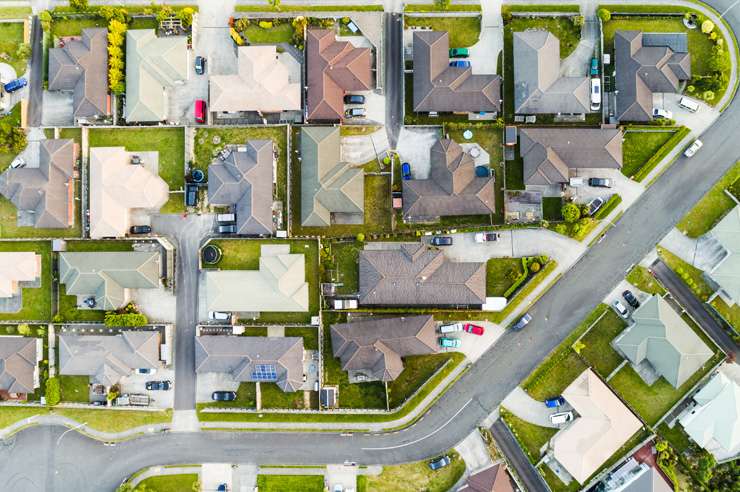The Wellington housing market has dropped in value so much that a house worth $2 million last year could sell for several hundred thousand dollars less now.
Buyers are savvy there has been a big price drop in the capital city and surrounds, too, says Nicki Cruickshank, principal of Tommy's Real Estate.
REINZ figures released this week showed the median price in Wellington was down 20.2%, to $790,000, in December 2022 compared to December 2021.
Says Cruickshank: “We’ve gone down over 20% in Wellington so if you’ve looking at a $2m house, you’re paying $400,000 less for a start so it certainly makes up for the [rising] interest rates, doesn’t it?”
Start your property search
In what could be a challenging year ahead, the good news is this year has started with a bang with buyer numbers looking to be up from the end of last year.
A property in Karori had 52 parties through on Sunday, which Cruickshank says is a number not seen for well over a year.
She puts the better open homes turnout down to factors such as the number of people who have been sitting on their hands for a long time now deciding to get on with it, saying they may have been reading news stories and thinking the bottom is either here or that it’s time to get in before prices take off again.
Buyers include more first-home buyers out looking, along with families looking to upsize.
These families may have been sitting in a house too small for them for a couple of years because prices have been too expensive but now they can see the end of the interest rate rises ahead.
“They may have to gut it out for six months or something but it might not be as bad as it could have been.”
Grant Henderson, regional general manager for Bayleys in Wellington, says Upper and Lower Hutt are proving popular for house hunters and probably represent the best value in the region at the moment.
“You can buy an old state or 1950s good home on a section of around 600-odd square metres for around mid-$600,000s. This time last year, that was $800,000 so even with lifted interest rates, sure, you're paying a bit more but there's less competition, there's more choice.”
Upper and Lower Hutt have had the most developments consented across the region because the council was proactive in changing the rules to enable more building, he says.
“That drove every single developer to buy every single little house they could find on a full site that they can subdivide up and put eight or 10 townhouses on.”
The developers were paying big money for sites and average buyers were missing out, but developers are no longer buying and the price is back down to what the house was always worth, Henderson says.
While Wellington has seen big price decreases, some areas, such as lifestyle properties, are still strong, he says.
The overall market is active which means people are looking to buy and if the stars align they will buy.

An aerial view of homes in Upper Hutt. Agents report that the area represents good value for buyers right now. Photo / Getty Images
“There’s no fear of missing out anymore, although there is still some competitive situations that are arising to certain properties.”
Buyers are well aware of price drops but Henderson says he’s yet to see “take it or leave it” offers, and it’s still tough out there with high interest rates and unfavourable borrowing conditions.
Neither are sellers desperate yet, though Henderson believes there will be if not mortgagee sales then distressed sales this year.
“People who have to get out and they just cannot continue and that is really unfortunate for people.”
He says banks got bad press after the GFC for pouncing quickly on people’s homes and have adopted a “be kind” approach for some time, but that could come to an end.
“I think that will change because banks will lose their ability to stomach the no payments for too long.”
Henderson says if people can hold on for 18 months to two years they should be okay, but he also says that depends on them holding down jobs.
He says there has been a lot of mental illness throughout the pandemic with a lot of people not doing so well.
He predicts a tough housing market throughout the year and thinks there will be some hard negotiating.
“There will be sellers that say ‘we're not selling, hold on, we don't need to sell, we'll wait’ and the waiting game may be two years away.
“I think 2024 there will be a change in monetary policy, there'll be decreasing interest rates and we'll start to see the market start to come alive again.”



















































































